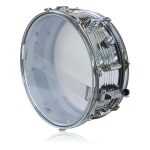Essential Interview Tips for Aspiring Veterinary Surgeons: A Comprehensive Guide
Embarking on the journey to becoming a veterinary surgeon is no small feat. The pathway is laden with challenges, dedication, and a profound passion for animal welfare. Yet, once you’ve navigated the rigorous academic landscape, the next significant hurdle is the interview process. A nuanced understanding of what to expect can set you apart in a competitive field. Here are some indispensable tips to prepare you for that all-important day.
Understanding the Role
Before stepping into the interview room, it’s crucial to grasp the multifaceted nature of veterinary surgery. This isn’t merely about performing operations on animals; it encompasses a comprehensive approach to health care, client communication, and ethical considerations. Familiarise yourself with the latest advancements in veterinary medicine, surgical techniques, and common procedures. Employers will be keen to assess not only your technical knowledge but also your understanding of the broader context in which you’ll be working.
-
Know Your Stuff
Brush up on key topics such as anaesthesia, pain management, and post-operative care. You might be asked to discuss a particular case study or your approach to a surgical dilemma. The ability to articulate your reasoning and demonstrate your critical thinking skills can be a game changer. -
Practical Experience
Your hands-on experience carries weight. Whether it’s through placements, volunteering at local shelters, or shadowing established surgeons, your practical background can provide rich anecdotes to share. Remember, these experiences not only bolster your CV but also enhance your communication skills, allowing you to connect with your interviewers on a deeper level.
The Art of Communication
Veterinary surgeons must possess exceptional interpersonal skills, as they frequently interact with pet owners, staff, and other medical professionals. During the interview, focus on showcasing your ability to communicate effectively.
-
Empathy is Key
Animals can’t voice their discomfort, so being able to empathise with both the pet and its owner is vital. Be prepared to share instances where you’ve demonstrated compassion, patience, and understanding—these traits are often as important as technical proficiency. -
Practice Active Listening
Interviews are a two-way street. Demonstrating that you can listen attentively to questions and respond thoughtfully is just as critical as answering correctly. Reflect on your past experiences where you’ve had to listen carefully to clients or colleagues and respond appropriately.
Dress and Demeanour
Your appearance can make a lasting impression. Opt for professional attire that balances smartness with practicality—think crisp shirts, tailored trousers, and comfortable shoes. Your demeanour should exude confidence and approachability; practice a firm handshake and maintain eye contact to convey assurance.
-
Body Language Matters
Non-verbal communication can speak volumes. Sit up straight, avoid crossing your arms, and nod in acknowledgment when the interviewer speaks. This will not only help you appear engaged but also boost your own confidence during the conversation. -
Be Mindful of Time
While it’s important to elaborate on your points, be aware of the interview’s pacing. Keep your responses concise yet informative; this shows respect for the interviewer’s time and keeps the dialogue flowing smoothly.
Anticipate the Questions
Interviews can often feel like a minefield. However, anticipating common questions can significantly alleviate anxiety. Prepare for queries that probe your motivation for pursuing veterinary surgery, your strengths and weaknesses, and scenarios that test your problem-solving abilities.
-
Scenario-Based Questions
You may be presented with hypothetical situations, requiring you to think on your feet. Practise articulating your thought process clearly and logically. Discussing how you would handle a particular case or ethical dilemma will highlight your readiness for real-world challenges. -
Reflect on Your Journey
Be ready to share your personal journey—what drew you to this profession, any pivotal moments that solidified your decision, and your aspirations for the future. Authenticity resonates well with interviewers, so don’t hesitate to let your passion shine through.
Embrace the Experience
Interviews can be daunting, but remember they are also an opportunity for you to assess whether the practice aligns with your values and career aspirations. Embrace the experience as a chance for growth. With preparation, confidence, and a genuine love for animals, you’ll undoubtedly leave a positive impression.
As you continue your journey towards becoming a veterinary surgeon, remember that CVPortal is here to provide you with a plethora of high-quality CV references tailored to help you stand out in your next endeavour. Your passion for animals and commitment to their care is what truly matters, so let that shine through in every interaction.


